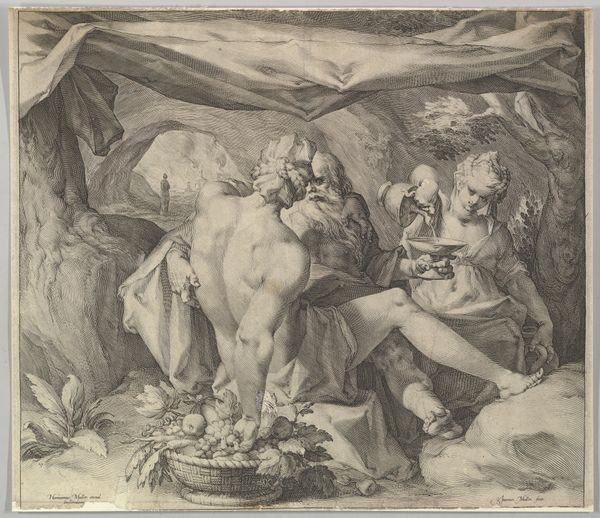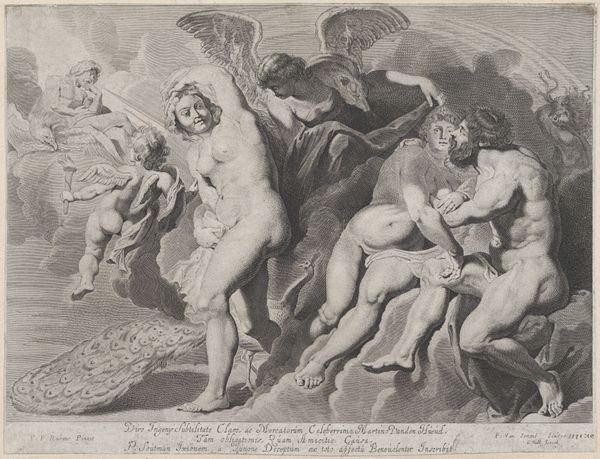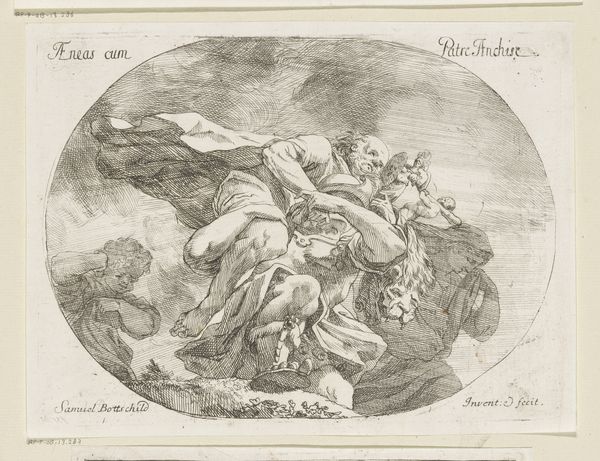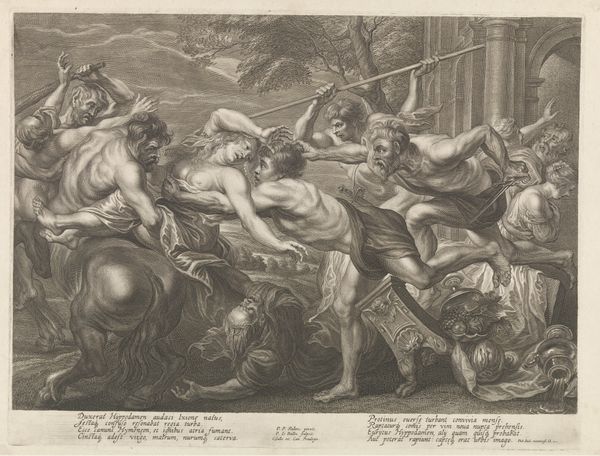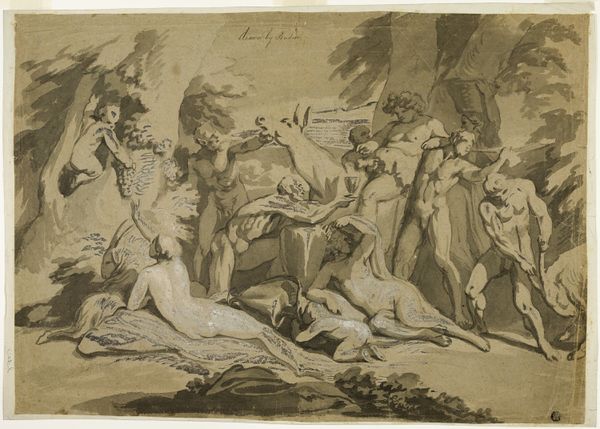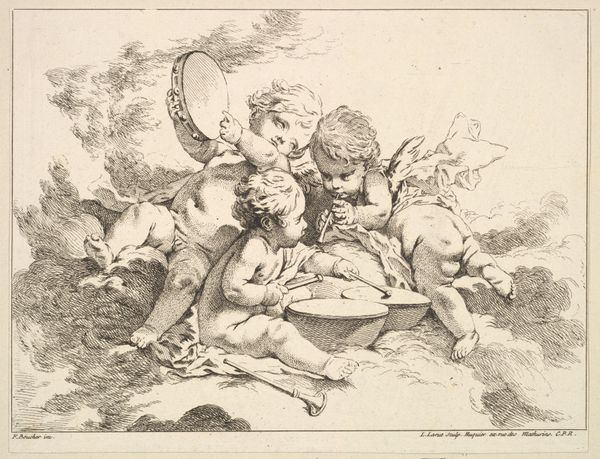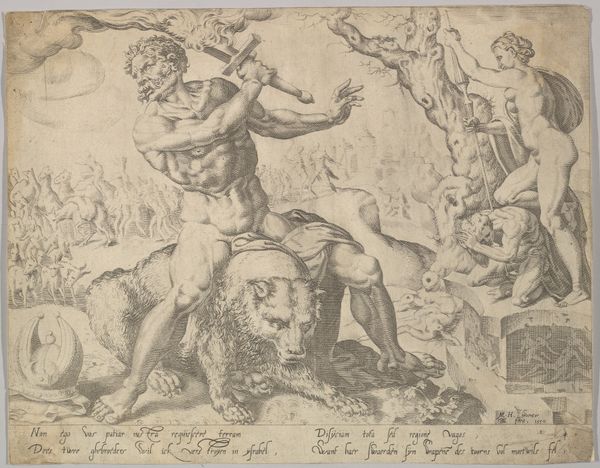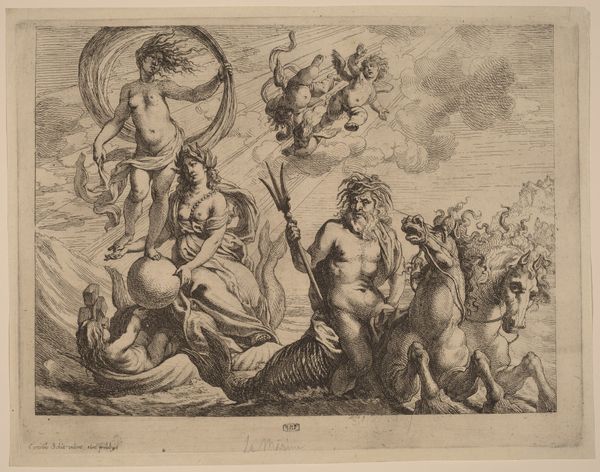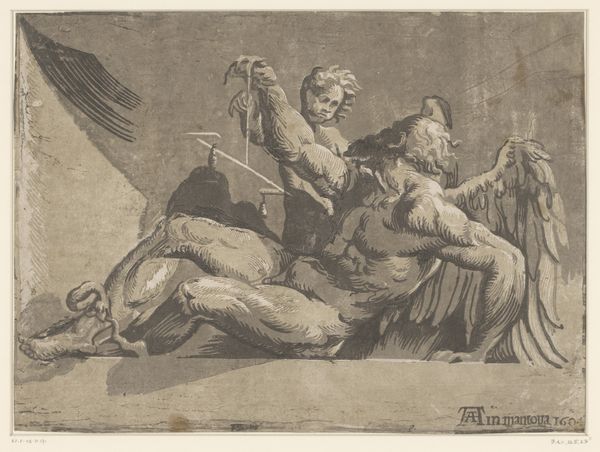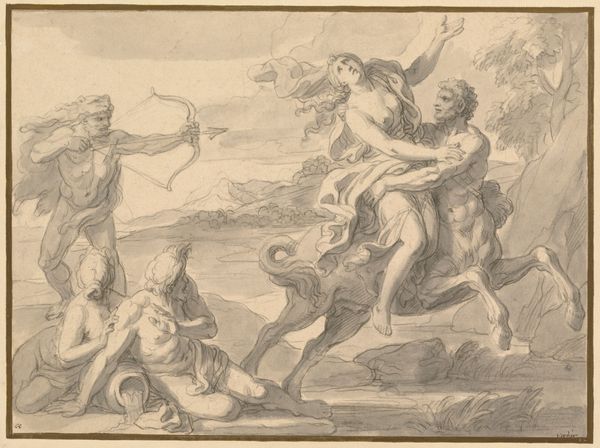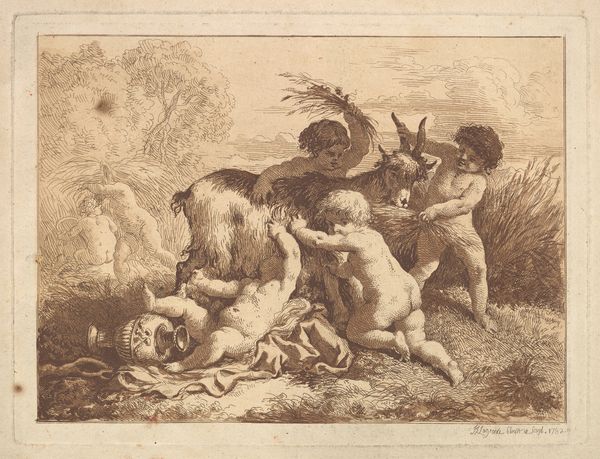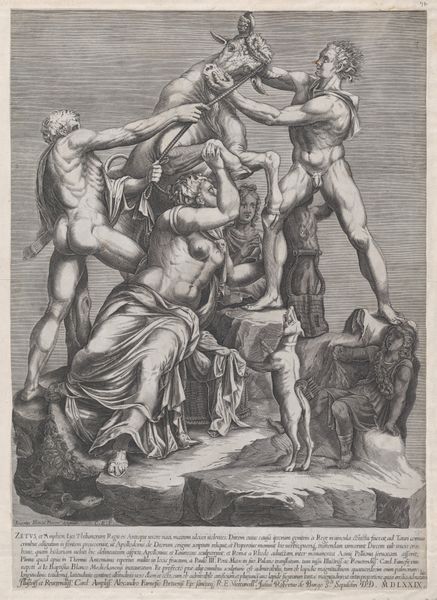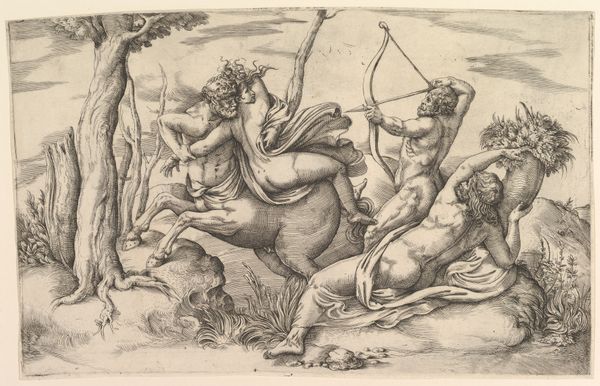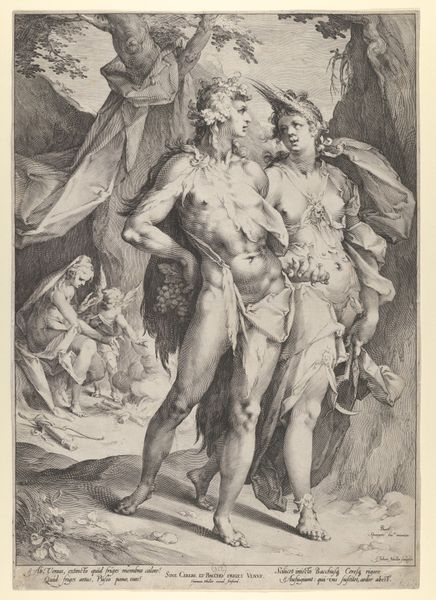
print, engraving
#
allegory
#
baroque
# print
#
figuration
#
history-painting
#
nude
#
engraving
Dimensions: Sheet (Trimmed): 11 3/4 × 13 3/4 in. (29.8 × 34.9 cm)
Copyright: Public Domain
Jonas Suyderhoef created this print, "Drunkenness of Bacchus," in the 17th century. It depicts the Roman god of wine, Bacchus, in a state of inebriation, supported by satyrs and accompanied by maenads and a panther. The wreath of grapes and ivy adorning Bacchus is a recurring symbol, echoed in countless works across millennia. We see its origins in ancient Dionysian festivals, rituals, and art. This symbol travels through time. Think of Titian's "Bacchus and Ariadne," where the god also wears this crown, representing ecstasy, fertility, and liberation. But the image of Bacchus is not always so jubilant. Caravaggio captures a sickly, unsettling Bacchus. The symbol of the wreath remains, yet its meaning warps, reflecting the complex and often contradictory nature of human experience. Perhaps, the collective memory of these festivals imprints on the image. Its echoes subtly shaping the viewer's subconscious response. This symbol’s lasting power lies in its ability to tap into our collective, often conflicting, associations with intoxication and revelry.
Comments
No comments
Be the first to comment and join the conversation on the ultimate creative platform.
